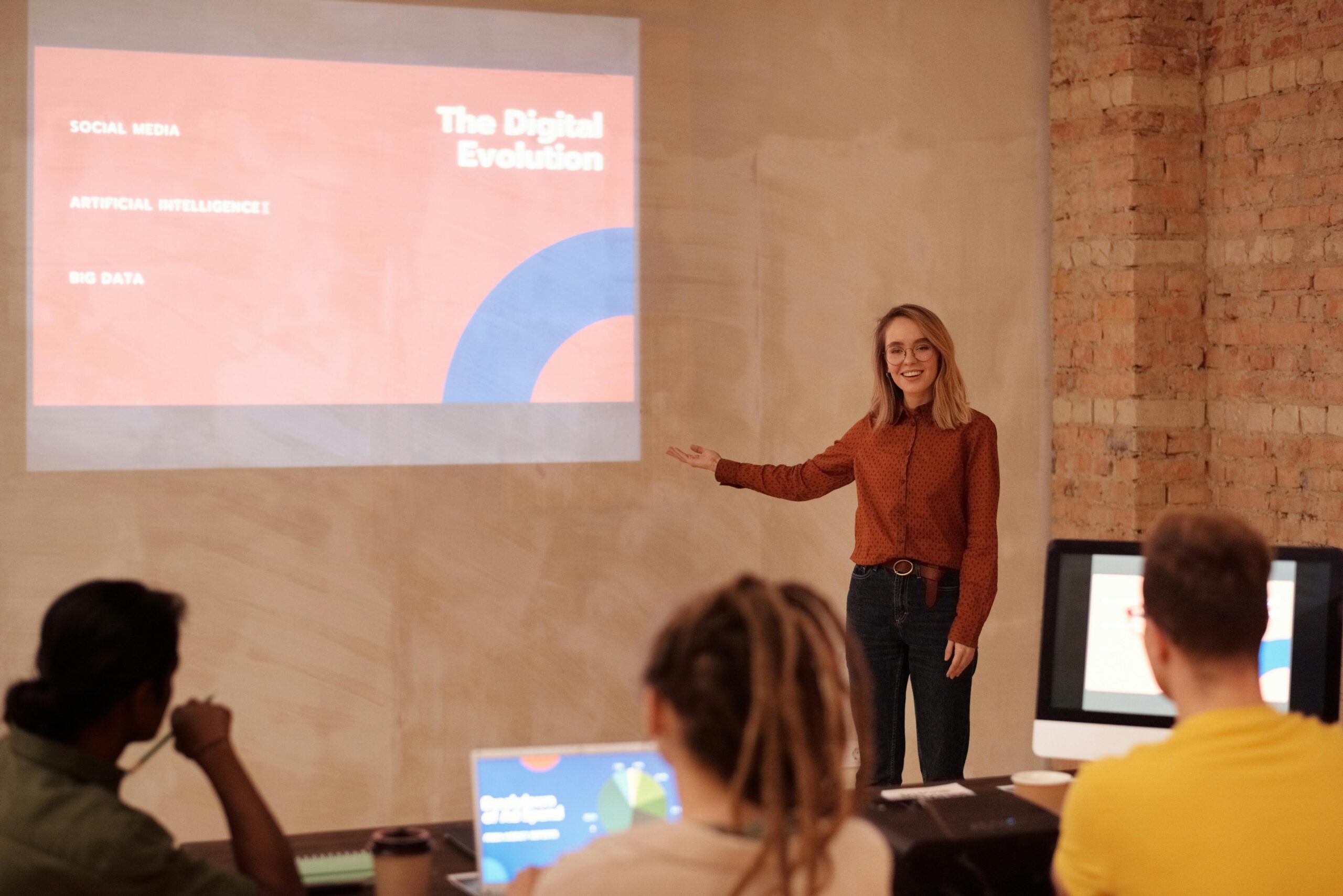Corporate social impact has evolved from a mere marketing strategy into a core business imperative, reshaping how organizations operate and connect with communities worldwide.
In today’s rapidly changing business landscape, companies are recognizing that their success is intrinsically linked to the wellbeing of society and the environment. This paradigm shift has given birth to a new era of corporate responsibility, where businesses are no longer judged solely by their financial performance but also by their positive contributions to the world. From reducing carbon footprints to championing social justice, organizations across industries are reimagining their role in society and discovering that doing good is not only morally right but also strategically advantageous.
The transformation we’re witnessing goes beyond traditional philanthropy or token gestures. Today’s corporate social impact initiatives are deeply embedded in business models, influencing everything from supply chain decisions to product development. This comprehensive approach reflects a growing understanding that sustainable success requires addressing the complex challenges facing our communities, from climate change and inequality to education and healthcare access.
🌍 The Evolution of Corporate Responsibility
The journey of corporate social responsibility has been remarkable. What began as simple charitable donations in the early 20th century has evolved into sophisticated, multi-faceted programs that tackle systemic issues. Modern companies understand that their stakeholders—customers, employees, investors, and communities—expect them to be agents of positive change.
This evolution reflects broader societal shifts. Millennials and Gen Z consumers, who now represent significant purchasing power, actively seek brands that align with their values. Studies consistently show that these demographics are willing to pay premium prices for products from socially responsible companies. Similarly, top talent increasingly chooses employers based on their commitment to social and environmental causes, making corporate social impact a crucial factor in talent acquisition and retention.
The business case for social impact has never been stronger. Companies with robust sustainability programs often experience enhanced brand reputation, increased customer loyalty, improved employee engagement, and even better financial performance. Research from leading institutions demonstrates a positive correlation between strong environmental, social, and governance (ESG) practices and long-term shareholder value.
Strategic Approaches to Social Impact
Forward-thinking companies are adopting various strategies to maximize their social impact while staying true to their business objectives. These approaches range from cause-related marketing to creating shared value models that simultaneously address societal challenges and generate business opportunities.
Embedding Purpose in Core Operations
The most effective corporate social impact programs are those integrated into the company’s DNA rather than treated as separate initiatives. Leading organizations are redesigning their business models to ensure social and environmental considerations inform every decision. This might involve rethinking supply chains to ensure fair labor practices, developing products that solve social problems, or restructuring operations to minimize environmental harm.
Take the example of companies in the food industry working to eliminate food waste while addressing hunger. By creating innovative distribution systems, these businesses turn surplus inventory into donations for communities in need, reducing waste and providing nutrition simultaneously. This approach creates value for society while also reducing costs and enhancing brand reputation.
Employee Engagement and Volunteerism
Smart companies recognize that their employees are powerful agents of change. Many organizations have established robust volunteer programs that allow staff to contribute their skills and time to causes they care about. These programs boost employee morale, develop leadership skills, and strengthen community connections.
Some businesses offer paid volunteer days, matching gift programs, or skills-based volunteerism where employees can apply their professional expertise to help nonprofits. This approach not only multiplies the impact but also provides employees with meaningful experiences that increase job satisfaction and loyalty.
💡 Innovative Models Creating Real Change
The landscape of corporate social impact is rich with innovation. Companies are experimenting with new models that blur the lines between profit and purpose, demonstrating that business can be a powerful force for good.
Social Enterprise Partnerships
Many corporations are partnering with social enterprises—organizations that use business methods to solve social problems. These partnerships leverage the strengths of both parties: the corporate partner brings resources, expertise, and scale, while the social enterprise contributes deep community knowledge and mission-driven innovation.
These collaborations often focus on issues like poverty alleviation, education access, healthcare delivery, or environmental conservation. By working together, corporations and social enterprises can achieve impact that neither could accomplish alone, creating sustainable solutions to persistent challenges.
Impact Investing and Venture Philanthropy
Progressive companies are allocating capital specifically for investments that generate measurable social or environmental impact alongside financial returns. This impact investing approach represents a significant shift from traditional philanthropy, where capital is donated without expectation of financial return.
Through impact investing, corporations can support innovative startups and organizations working on solutions to pressing social problems while potentially earning returns that can be reinvested for further impact. This model creates a sustainable cycle of social innovation and demonstrates that profit and purpose need not be mutually exclusive.
Measuring What Matters: The Impact Imperative
As corporate social impact initiatives mature, the question of measurement becomes increasingly important. Stakeholders want to know not just what companies are doing, but what difference these efforts are actually making. This demand for accountability has driven the development of sophisticated measurement frameworks and reporting standards.
Companies are adopting various methodologies to assess their social impact, from simple output metrics (number of volunteer hours, dollars donated) to more sophisticated outcome measurements (lives improved, environmental metrics changed). The most advanced organizations are even attempting to measure long-term systemic change resulting from their interventions.
Frameworks like the United Nations Sustainable Development Goals (SDGs) provide a common language for companies to articulate their impact ambitions. Many corporations now align their social impact strategies with specific SDGs, making it easier for stakeholders to understand their contributions to global priorities like ending poverty, ensuring quality education, and combating climate change.
🚀 Technology as an Enabler of Social Impact
Digital transformation has opened new frontiers for corporate social impact. Technology companies, in particular, are leveraging their core competencies to address social challenges, but businesses across sectors are discovering how digital tools can amplify their positive influence.
From mobile apps that connect volunteers with opportunities to blockchain systems that ensure supply chain transparency, technology is making social impact more efficient, transparent, and scalable. Artificial intelligence and data analytics enable companies to identify needs more accurately, target interventions more precisely, and measure impact more rigorously.
Some technology companies are making their platforms available to nonprofits at reduced rates or for free, multiplying the capacity of organizations working on critical issues. Others are developing specific technologies designed to address social problems, from educational software for underserved communities to healthcare apps that improve access in remote areas.
Challenges and Critiques: Navigating the Complexity
Despite the progress, corporate social impact faces legitimate challenges and criticisms. Skeptics point to “greenwashing” or “social washing,” where companies make exaggerated or false claims about their social and environmental efforts. These concerns underscore the importance of authenticity, transparency, and rigorous measurement in social impact work.
Another challenge involves balancing short-term business pressures with long-term social impact goals. Creating meaningful change often requires sustained investment over years or even decades, which can be difficult to maintain in environments focused on quarterly results. Leading companies address this tension by making social impact central to their long-term strategy and educating stakeholders about the business value of patience.
There’s also the question of scope and effectiveness. Some critics argue that corporate social impact programs, while well-intentioned, often address symptoms rather than root causes of social problems. They contend that more fundamental changes to business practices or policy advocacy might create greater impact than traditional CSR programs.
🌟 Success Stories Inspiring the Movement
Despite challenges, numerous companies are demonstrating what’s possible when business commits to social impact. These success stories inspire others and prove that corporate social responsibility can drive both social progress and business success.
Outdoor apparel companies have pioneered environmental activism as a business model, using their platforms to advocate for wilderness protection while implementing sustainable manufacturing processes. Their approach has influenced an entire industry and shown that strong values can coexist with profitable business.
In the technology sector, major corporations have committed billions to education initiatives, particularly in underserved communities. By investing in computer science education, digital literacy programs, and teacher training, these companies are helping prepare future generations for the digital economy while building their future talent pipeline.
Food and beverage companies have made significant strides in sustainable sourcing, working directly with smallholder farmers to improve agricultural practices, increase incomes, and protect ecosystems. These programs have lifted thousands of farming families out of poverty while securing more sustainable supply chains.
The Role of Leadership and Culture
Meaningful corporate social impact doesn’t happen by accident—it requires committed leadership and an organizational culture that values purpose alongside profit. The most successful companies have leaders who champion social impact from the top, embedding these values throughout the organization.
This cultural transformation involves more than mission statements or corporate values posted on walls. It requires training programs that help employees understand the company’s social impact goals, incentive structures that reward contributions to those goals, and communication systems that celebrate impact achievements alongside business wins.
Progressive companies are also reconsidering governance structures to ensure social impact remains a priority. Some have created board-level committees focused on sustainability and social responsibility, while others have appointed chief impact officers or chief sustainability officers with executive authority to drive change.
Looking Ahead: The Future of Corporate Social Impact
The trajectory of corporate social impact points toward even deeper integration with business strategy. As stakeholder expectations continue to rise and global challenges become more pressing, companies that fail to embrace social responsibility risk becoming irrelevant.
We’re likely to see increased collaboration across sectors, with businesses, governments, and nonprofits working together on systemic challenges that no single entity can solve alone. These partnerships will leverage the unique strengths of each sector to create solutions at the scale required by problems like climate change, inequality, and healthcare access.
Transparency will become even more critical. Stakeholders will demand detailed information about corporate social impact efforts, backed by rigorous data and third-party verification. Companies that embrace this accountability will earn trust and loyalty, while those that resist will face increasing scrutiny.
The rise of benefit corporations and other purpose-driven business structures suggests that the legal and regulatory environment is evolving to support companies that prioritize social impact. As these frameworks mature, we may see a fundamental reimagining of what corporations are for and to whom they’re accountable.

Making Your Organization’s Difference
For businesses looking to strengthen their social impact, the journey begins with authentic commitment and strategic thinking. Start by identifying social or environmental issues that align with your core business, values, and competencies. The most powerful social impact comes from leveraging what your company does best to address meaningful challenges.
Engage stakeholders throughout the process—employees, customers, community members, and partners—to understand needs and co-create solutions. This participatory approach ensures relevance, builds buy-in, and often surfaces innovative ideas that leadership might miss.
Remember that creating meaningful change takes time. Resist the temptation to spread efforts too thin or chase every trending cause. Instead, focus on a few areas where you can make a sustained, measurable difference. Depth of impact matters more than breadth of activity.
Finally, be transparent about both successes and challenges. Share your learnings openly, celebrate progress, and acknowledge when initiatives fall short. This honesty builds credibility and contributes to the collective learning that’s moving corporate social impact forward.
The companies making the biggest difference today are those that recognize social impact as a journey, not a destination—an ongoing commitment to using business as a force for positive change in the world. As more organizations embrace this mindset, the collective impact has the potential to transform our society for the better, proving that business success and social progress can and should go hand in hand. The future belongs to companies that understand this fundamental truth and act on it with courage, creativity, and commitment. 🌱
Toni Santos is a future-of-work researcher and social innovation writer exploring how technology, culture, and global mobility are redefining what it means to work and thrive in the 21st century. Through his studies on automation, digital nomadism, and workforce transformation, Toni examines the balance between progress, adaptability, and human purpose in a rapidly changing world. Passionate about remote collaboration systems and digital inclusion, Toni focuses on how emerging tools and global connectivity empower individuals to build meaningful, flexible, and resilient careers. His work highlights how automation and new work models can coexist with creativity, empathy, and social value. Blending sociology, economics, and digital strategy, Toni writes about the human side of innovation — helping readers understand not only where work is heading, but how to align with its transformation responsibly and purposefully. His work is a tribute to: The evolving relationship between automation and human employment The rise of global, location-independent lifestyles The power of resilience and adaptability in the modern workforce Whether you are a freelancer, remote leader, or curious observer of the new economy, Toni Santos invites you to explore the future of work — one idea, one connection, one transformation at a time.




